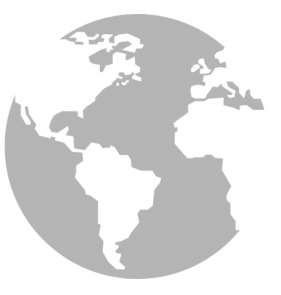ABOUT
The Maison des Cultures du Monde (World Cultures Institute) was created in 1982 to promote cultural exchange programs between France and other countries throughout the world. It is open to all horizons and civilizations, with a preference for cultural and artistic perspectives rather than a strictly political focus. It is committed to protecting cultural diversity and the expression of cultural identities.
Based on its main ongoing mission of supporting and sustaining intangible cultural heritage throughout the world, it focuses on unveiling the immense diversity of creation and re-creation through the extraordinary abundance of festivities, rituals, games, and entertainment by which humans depict themselves. Human beings express their most personal aspects through the act of creation, and by opening ourselves to the cultural expressions of others, we come to know each other better and to better understand the specificity of human nature and the relationship of human beings to the world. The World Cultures Institute is recognized in France and abroad for its pioneering role in:
- protecting and encouraging awareness of cultural diversity and respect for difference;
- researching and programming intangible cultural heritage performing art forms (Festival de l'Imaginaire);
- founding the anthropological discipline "ethnoscenology," in conjunction with the international academic community and UNESCO;
- documenting and recording rare and endangered music.
The Festival de l'Imaginaire, established in 1997, is held each year in spring and features groups of traditional performing artists. Most of the artists are performing in France for the first time, or there may be "comebacks" after several years of absence, either to cater to the desires of a new generation of spectators or to introduce new talents to the international scene. During the festival, it is not uncommon to watch great masters, guardians of tradition, performing alongside young artists eager to enrich and revive age-old art forms. Over a period of three months, between March and June, the festival is held at several well-known Parisian venues (The Alliance Française Theatre, the Amphitheatre of the Opéra Bastille, the Auditorium of the Louvre Museum, the Arab World Institute, the Guimet Museum, the Zingaro Equestrian Theatre, etc.) and marshals the energies and enthusiasm of other regional and European institutions that want to introduce as yet unknown cultural forms to European audiences. The festival strives to constantly kindle spectators' curiosity with a three-pronged approach: Exploration, Discovery, and Revelation. Each performance is put through a painstaking field study before selection. The decision to schedule a given art form on the Parisian cultural scene is not taken lightly: the choice is based on several parameters, in particular, the aesthetic yardstick of the culture in which this art form originated, and the risks inherent to transplanting it into a "foreign" environment. A large network of consultants, cultural advisors, and associates assure this phase of extensive research and the preliminary groundwork: anthropologists, theatre people, local consultants, and others work to ensure that the programming remains true to its meticulous standards and philosophy. In 2006, Chérif Khaznadar entrusted Arwad Esber with the artistic direction of the Festival de l'Imaginaire and appointed her Director of the World Cultures Institute in 2007. With one foot in Western culture and the other in oriental culture, she is particularly sensitive to questions of respect for the right to difference and for cultural diversity and has been developing the festival further in three main directions:
- doing research on unknown expressions of intangible cultural heritage and promoting the transmission of these cultural expressions to new generations;
- focusing special attention on countries which have, throughout the years, witnessed the multiplication of their peoples and cultures and presenting the results of such crossbreeding;
- seeking artists among the new generations who have been able to recreate their traditions according to their own cultural assets and to produce new creations;
- further developing educational and outreach activities. The festival is also a forum for reflection and for debate. Symposiums, round tables, conferences, lecture-demonstrations, and other activities highlighting issues of cultural interest or of social concerns, offer new landmarks, thus broadening our vision of the world.
www.festivaldelimaginaire.com
"World traditional music" has braved considerable changes over these last few years. Today the heading "world music" encompasses a variety of genres: from traditional music – both erudite and popular - to international pop and urban foreign music. The INEDIT series, founded in 1985 by Françoise Gründ and led since 1999 by ethnomusicologist Pierre Bois, is the World Cultures Institute's answer to the ever-evolving trends and the confusion of genres that prevail in the market. It is the alternative born of our commitment to defend the integrity of living cultures and repertoires emanating from tradition.
The INEDIT series, recognizable for its singular worldview, is a mirror to the musical discoveries offered by the World Cultures Institute (live concert recordings), a means for ethnomusicologists to publish field recordings, and an active memorial dedicated to the preservation of endangered forms of the world musical heritage (through anthologies and complete series). Each CD contains extensive information in the form of a bilingual (sometimes trilingual) booklet written by ethnomusicologists and researchers. The series has received more than 200 awards and citations for its relentless quest for quality and originality, both "trademarks" of the World Cultures Institute. With an average turnout of six releases per year and also available in download and streaming on major e-stores, the catalogue of the INEDIT series currently contains 140 albums. Munir Bachir and his son Omar Bashir, Abida Parveen, Alim Qâsimov, Aqakhan Abdullaev, Ida Widawati, Davlatmand, Coumbane Ely Warakane, Aïcha mint Chighaly, Matar Muhammad, Nidaa Abou Mrad, Hajj Abdelkrim Rais, Mohamed Larbi Temsamani, Ahmed Zaytouni Sahraoui, Beihdja Rahal, Khemais Tarnane, Mehr Ali and Sher Ali, Kong Nay, Okna Zam Tsagan, Faiz Ali Faiz, Hukwe Ubi Zawose, Curro Piñana, Lee Jae-hwa, Omar Bachir, Yoshio Kurahashi, are a few examples from among yesterday's and today's internationally acclaimed artists who recorded with INEDIT.
www.label-inedit.com
OTHER LINKS


